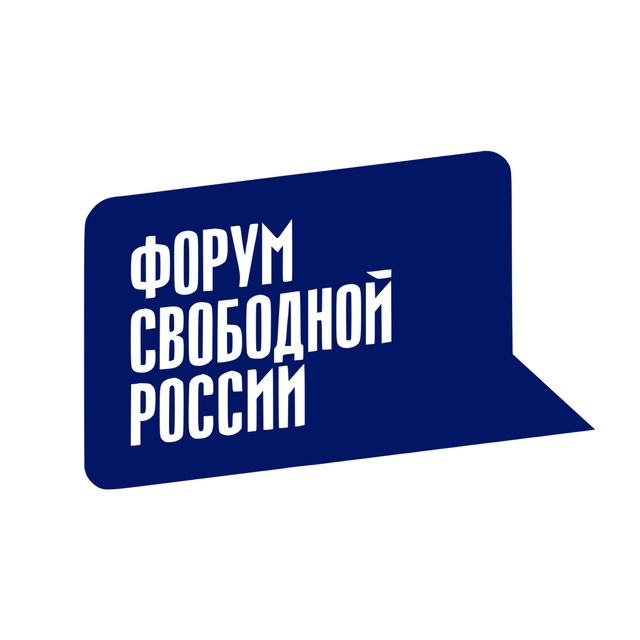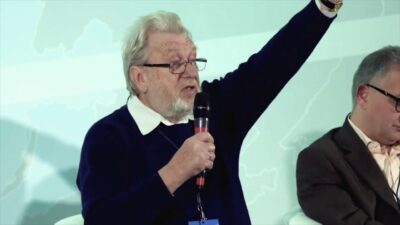
As the Putin regime’s war in Ukraine continues, we must remain committed to the cause of protecting the rights of the Ukrainian people. Doing so requires not only steadfast commitment to the values of freedom and democracy, in Ukraine and worldwide, but also a clear grasp of the facts on the ground. This can often be difficult in light of the extensive and subtle propaganda efforts carried out by the Putin regime. One such disinformation campaign has lodged international concern about the Ukrainian government’s insufficient defense of human rights, including in the realm of religious freedom. We seek to set the record straight here, with the aim of paving the way for action that will genuinely promote the flourishing religious of freedom within Ukraine, rather than further the goals of the Putin regime.
The modern Russian Federation follows the very worst practices of the Soviet Union when it comes to religious freedom, from infringement on the right to worship freely, to the use of religious organizations for espionage and the creation of overseas political networks. The Moscow
Patriarchate, acting in close concert with Vladimir Putin, instills anti-Western attitudes among its congregations and fully supports Russian aggression against Ukraine. Furthermore, it continues to assert that its canonical territory extends far beyond the borders of Russia. Even before the start of the war the Russian Orthodox Church was actively spreading the idea of a “Russian world,” thereby engendering conflicts in Ukraine, Moldova, Belarus, and the Baltic countries.
Historical developments have led (as in the majority of countries where members of orthodox faiths reside, including the United States) to the existence of several orthodox denominations on Ukraine’s territory. One of these is the Ukrainian Orthodox Church (UOC), previously forming a part of the Moscow Patriarchate and for a long time maintaining organizational, spiritual, and ideological ties with it. Since the establishment of Ukraine’s independence, these ties have been weakening, and, after the start of the war, the majority of its priests and lay ministers have raised with their leadership the question of a complete break with Moscow. Answering to the needs of his flock, UOC Metropolitan Onufriy denounced Russian aggression against Ukraine, going so far as to call it a “cainitic crime.” Ministers of the UOC ceased referring to Moscow Patriarch Kirill en masse (the patriarch openly supports Russian aggression against Ukraine). Parishioners began enlisting as volunteers in the ranks of the Ukrainian armed forces and territorial defense, as well as collecting resources for Ukraine’s wartime needs, dispelling myths about a lack of patriotism amid the ranks of the UOC, and of the church serving as an incubator for hostile and collaborationist attitudes.
Meanwhile, the Putin regime has actively begun spreading disinformation on the “persecution” of the UOC. Many in Europe and America, committed to the value of religious freedom, have believed the Kremlin propaganda and are worried about the infringement on the rights of members of the UOC, when, in reality, matters stand as follows:
On May 27, 2022, the Council of the UOC effectively declared complete independence from the Russian Orthodox Church (ROC), a move out of alignment with its openly pro-Russian ministers, who have never tried to hide that they see themselves as agents of Moscow’s influence and put loyalty to the ROC ahead of all else. Some of them not only became feeders of pro-Russian propaganda but took part in active espionage; attempts by Ukrainian law enforcement agencies and security services to curb this activity were portrayed by Russian propaganda as “persecution” of the entire UOC. This licentious Kremlin campaign also tried to cut off increasing cooperation between priests and lay ministers of different orthodox denominations, who had previously engaged in skirmishes on various canonical disagreements but had started to draw closer.
The West must focus its attention not on the “persecution” of Moscow’s agents of aggression, but on the actions of the Moscow Patriarchate—both its support of Putin’s war against Ukraine, and its sanctioning of the regime’s repression of dissidents. Having effectively merged with the authoritarian Russian government, the ROC, in violation of the Russian constitution, has become the “official” denomination in Russia. It is inverting the commandments of Christianity, “cleaning out its ranks” of ministers who are genuinely committed to upholding the ideals of peace and goodwill. Ministers who speak out against the war and repression of the opposition are prohibited from delivering services and driven out of parishes.
With the help of the repressive government apparatus in Russia, Jehovah’s Witnesses are subject to harsh persecution; they have officially been declared an unlawful entity in Russia. (The scale of this persecution is on par only with two preceding instances in the group’s history: in Nazi Germany and in the Stalinist USSR, a fact that demonstrates the kinship between Putinism and these totalitarian regimes). Members of the police forces and FSB carry out the role of inquisitors, questioning members of the group, and the courts hand down multi-year prison sentences. Serious pressure is also exerted on Protestant denominations in Russia, certain Muslim groups, Scientologists, Krishnaites, two Charismatic organizations in Ukraine, and likewise orthodox communities who do not belong to the ROC.
The Russian Federation is now exporting its politics of targeting unfavorable religious groups to the occupied territories of Ukraine. Starting in 2014, the occupying “powers” have taken repressive actions against Ukrainian religious communities in the quasi-“republics” of eastern Ukraine and in Crimea, and, since 2022, in the newly occupied territories. Russian occupying “powers” are responsible for dozens of confirmed and purposeful acts of religious persecution in Ukraine. The main victim is the Orthodox Church of Ukraine (OCU), an organization separate from the UOC that was established in 2019 and granted, at that time, autocephalous status by the Ecumenical Patriarch. The Moscow Patriarchate considers the OCU noncanonical and schismatic, and its site on Russian territory has been blockaded. Attacks on religious groups in Ukraine affect other denominations as well, such as Ukrainian Greco-Catholics and Protestants.
It is these actions, and not the supposed repression of the UOC by Ukrainian authorities, that constitute the real threat to the freedoms of conscience and worship of the citizens of Ukraine. They deserve the forceful condemnation of the free world.
The Council of the Free Russia Forum
January 14, 2024





